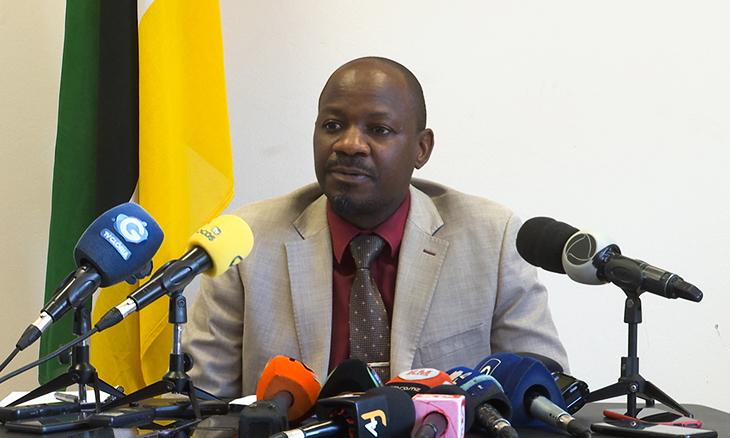Mozambique: Central bank holds 6th Annual Meeting of Branch Directors in Quelimane
Mozambique: Government announces TSU ‘arrangement’ – A Verdade

Photo: O País
- The government announced a TSU “arrangement” to satisfy doctors, teachers and judges
- Chiefs’ salaries “had to be reduced” to minimise the gap
The Government announced this Monday (21) that “about 98 percent of State Employees and Agents are in a position to receive their salaries” for the month of November without problems, and that it made an “arrangement” to satisfy the claims of doctors, teachers, and judges. The Deputy Minister of State Administration and Civil Service revealed that the salaries of some chiefs “had to be reduced” to minimise the gap in the Single Salary Table (TSU), and clarified that salary levels 20 and 21 “are not open for occupation at this stage of the framework”.
Almost a month after the beginning of the effective implementation of the new Public Administration Single Salary Table (TSU) in Mozambique, the Deputy Minister of State Administration and Public Service, Inocêncio Impissa, announced that, “out of the 400,000 employees that Public Administration today comprises, around 98 percent are in a position to receive their salaries” and that, “since the Multisectoral Framework Commission began operating, a total of 91 concerns and findings have been assessed”.
“From the assessment and the framing process, we found that there was an omission of careers in the correspondence table in the context of Decree 50/2022; the omission of certain functions of leadership and trust, despite the fact that the Government addressed this instrument and revised 56/2022 in the last [Cabinet meeting] Session (…) having identified an alternative solution which naturally reduced the discussion that was raised in the context of the wage gap practised in the month of October, which was the subject of complaints by various professional groups of the Civil Service. We also noted and discussed at the level of this Commission the omission of some functions at the level of the Local Assemblies, but also one of the most problematic issues which is the reduction of the percentages of risk allowances, location, seniority, overtime and emolumentary participation which were issues raised by the different professional groups,” Impissa explained.
At a press conference in Maputo City, the Deputy Minister revealed that although the TSU has 21 salary levels for the progression of State Employees and Agents (FAE) “currently two of the 21 levels, which are the upper levels, are not open for occupation at this stage of the framework for occupation by the different professionals of the Public Administration, being reserved for a later stage when the framework process ends”.
“Arrangement” at TSU to satisfy doctors, teachers and judges
Inocêncio Impissa explained that this decision not to classify the FAE at Levels 20 and 21 is also precautionary. “These two levels are currently safeguarded exactly to allow that, when the qualifiers are made, they allow a rational escalation until they get there, the specialists who are at the top of their career taking into account their working time, their experience, allow them to reach, when they reach 30 years of service, that they are more or less at the top of that table”.
The Deputy Minister of State Administration and Public Service also revealed that some “leaders had to have salaries reduced” to reduce the gap recorded in the payment of the October salary between the FAE who perform leadership functions and those who earn according to their technical careers. “What was done is to adopt a formula that allows a rational calculation of the salary and that differentiates between the career and the leadership to allow the gap not to be as it was. We had situations in Education in which a school director had three times the salary of a teacher,” he said.
Inocêncio Impissa said that an exception had been made to meet the demands of some professional classes, ensuring that they maintained not only the salary but also the subsidies they earned before the implementation of the Single Salary Table.
“It was established, not only for doctors, but for other professional associations such as teachers, judges and some others, the amounts that are established are maintained. However, for these classes that complained, a nominal amount was fixed, what they received when they applied the percentage at the time of implementation of the old Salary Table, this was the arrangement achieved, and it was a mutually achieved solution,” he clarified.
By Adérito Caldeira












Leave a Reply
Be the First to Comment!
You must be logged in to post a comment.
You must be logged in to post a comment.